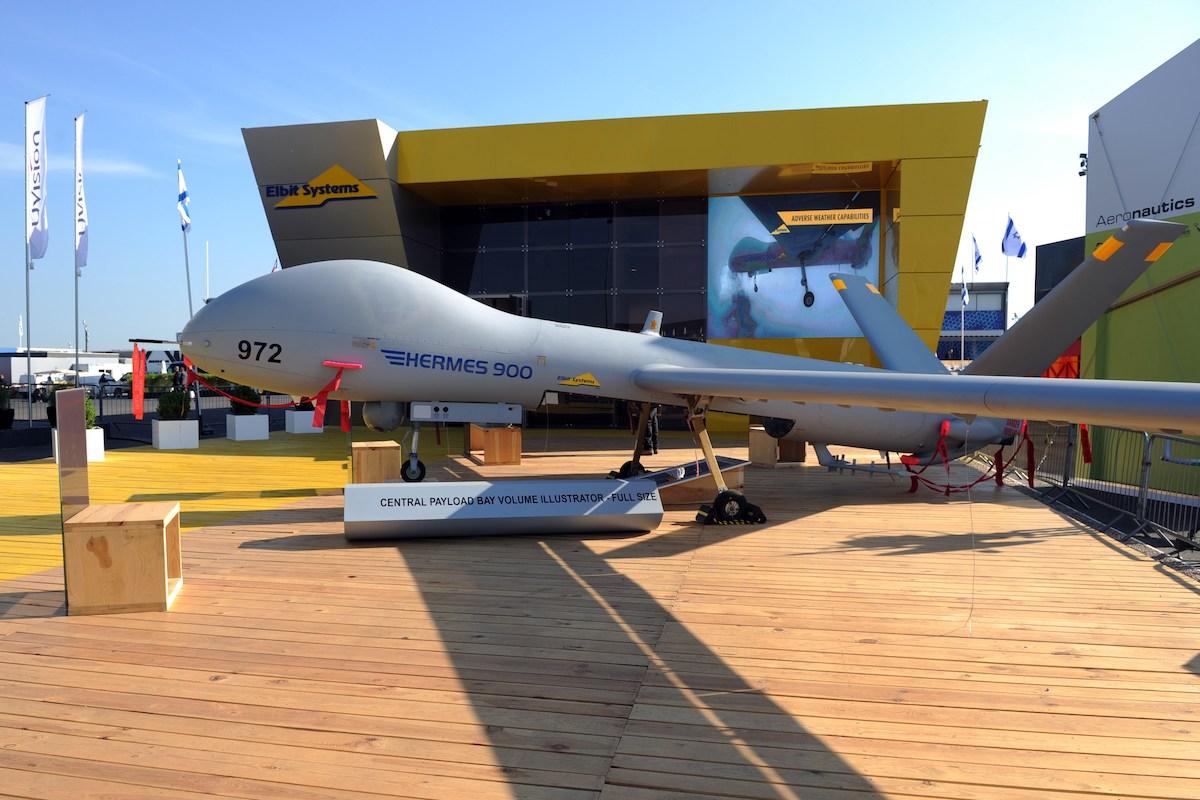Dubai Debut: Israeli Companies Exhibit At Airshow For The First Time

Having only recently shed a national status within the United Arab Emirates as largely unmentionable, eight Israeli companies—led by Elbit Systems, Israel Aerospace Industries (IAI) and Rafael—are now attending the largest aerospace event in Dubai.
Their attendance will attempt to make up for a historic—albeit an unintentionally disappointing—public debut by Israel’s defense industry in Dubai earlier this year. An even larger Israeli delegation was set to attend the IDEX defense exhibition in neighboring Abu Dhabi in February. But seeking to limit the spread of COVID-19, Israeli government officials banned foreign travel about two weeks before IDEX opened. Some Israeli companies dispatched employees based in other countries to Abu Dhabi instead, but overall attendance by the delegation was down significantly.
Despite the travel restrictions, Israeli and UAE defense industry and government officials announced their first publicly acknowledged collaboration only two weeks after IDEX ended.
Last year, the UAE became the first of five governments to normalize relations with Israel by signing the Abraham Accords, a pact brokered by the Trump administration and now championed by the Biden administration. Bahrain, Kosovo, Morocco and Sudan also opened diplomatic relations with Israel, leaving Egypt, Jordan, Kuwait, Oman, Qatar and Saudi Arabia among the most prominent Arab states without normalized status with Israel.
The agreement allows the UAE and Israel to collaborate on a wide range of industrial projects, including in the defense industry. The first agreement involves a new counter-unmanned aircraft systems (UAS) technology co-developed by Sign4l—a subsidiary of the UAE-based EDGE defense conglomerate—and IAI and Belgian Advanced Technology Systems.
The counter-UAS project also serves as a “stepping stone” to closer defense industry ties between the UAE and Israel, according to IAI officials.
A glimpse of the Israeli exhibitors attending offers clues about possible follow-on partnerships. In addition to Elbit, IAI and Rafael, Israeli’s state-owned Tomer is attending Dubai. Tomer supplies the rocket motors for a wide range of advanced Israeli missiles, including the Arrow 3 ballistic missile interceptor and Silver Sparrow target missile as well as a dual-pulse motor for the Barak long-range air defense family of interceptors. Tomer will exhibit alongside IAI’s Missiles and Space Group, the lead integrator for Israel’s ballistic missiles and interceptors.
Israeli media also have reported that the UAE has asked for information about the Iron Dome system, which counters rockets, cruise missiles and UAS and combines Rafael interceptors, IAI radars and Elbit’s command-and-control systems. Attacks on Saudi Arabian oil facilities by cruise missiles and UAS launched from Iran in 2019 have heightened awareness of the threat. The Yemen-based Houthi movement also claims to have attacked UAE airports and a nuclear energy plant with UAS and cruise missiles since 2017, but Emirati authorities have denied the reports.
As the U.S. Army deploys two newly acquired Iron Dome batteries abroad, the Israeli air defense system could make its debut in the region on a U.S. base.
But any agreement must survive the inherent tensions within the newly established relationship among the UAE, Israel and the U.S.
The Abraham Accords may have survived their first test already. On May 14, Sheikh Abdullah bin Zayed Al Nahyan, the UAE’s minister of foreign affairs and international cooperation, said he was “alarmed” during a 15-day conflict that broke out between Palestinians and Israelis, but he stopped short of blaming either side. By the end of June, the UAE and Israeli governments had reaffirmed the Abraham Accords, committing to “deepening, broadening and strengthening” their new relationship.
Over the summer, Israel opened an embassy in Abu Dhabi, while the UAE reciprocated by stationing diplomats in Israel. More than 130,000 Israelis visited the UAE within months of the signing of the Abraham Accords, taking advantage of the first direct flights opened between the two countries. In addition to the counter-UAS collaboration, Emirati and Israeli organizations have partnered on water and energy projects.
“The deepening diplomatic relationships also provide a foundation to tackle challenges that demand cooperation among nations, like reducing regional tensions, combating terrorism and mitigating the impact of the climate crisis,” U.S. Secretary of State Anthony Blinken said during an event in September commemorating the one-year anniversary of the signing of the Abraham Accords.
